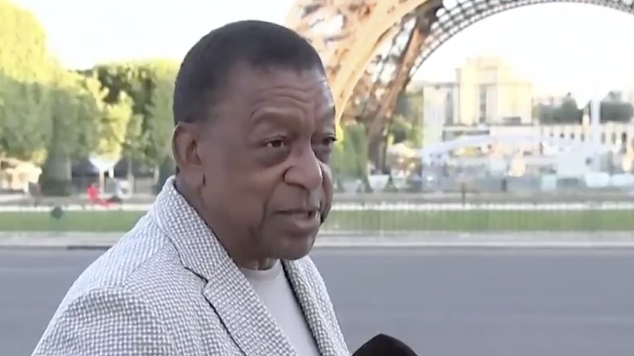BET's founder billionaire Robert L. Johnson sang Trump's praises, crediting the president for the low Black unemployment rate.
During an interview with CNBC on Tuesday, the former owner of BET claimed the Democratic Party is slowly moving too far left.
"The party in my opinion, for me personally, has moved too far to the left," Johnson, the founder of RLJ Companies business network told CNBC.
Praising Trump’s economic policies, American media mogul Robert Johnson says that the Democratic Party has moved “too far to the left.” https://t.co/kPIqhUCqOg
pic.twitter.com/lHTTJoWOu1— CNBC International (@CNBCi) July 9, 2019
The criticism seemed to be unfounded because the leading candidates, Senator Kamala Harris and former Vice President Joe Biden, have been criticized for not being liberal enough.
Although he supported former Secretary Hillary Clinton's bid for president in 2016, he admitted to not supporting a Democratic candidate for 2020.
"And for that reason, I don't have a particular candidate [I'm supporting] in the party at this time," he said. "I think at the end of the day, if a Democrat is going to beat Trump, then that person, he or she, will have to move to the center and you can't wait too long to do that."
After critiquing the Democrats, the 73-year-old gave President Donald Trump credit for the historically low unemployment rate. The Black unemployment rate, which Trump has patted himself on the back for, is roughly 6%.
"I think the economy is doing great, and it's reaching populations that heretofore had very bad problems in terms of jobs and employment and the opportunities that come with employment … so African American unemployment is at its lowest level," he said.
"I give the president a lot of credit for moving the economy in a positive direction that's benefiting a large amount of Americans," he said. "I think the tax cuts clearly helped stimulate the economy. I think business people have more confidence in the way the economy is going."
Twitter users were shocked by Johnson's statements. Many believed the billionaire's adulation of the president revealed his ignorance regarding Trump's White House.
Ok #robertjohnson keep playing that tune. pic.twitter.com/neKfe1XhJG
— DD (@MRDEDAVIS) July 9, 2019
I've heard that Robert Johnson will get up and leave the room and refuse to do business with people when there is no diversity in the room. To see a Black self-made man from Mississippi kiss Donald Trump's racist ass is sickening.
— skeptical brotha ???? (@skepticalbrotha) July 11, 2019
Robert Johnson has been praising Trump for some time. He has also criticized Former President Obama a number of times. No surprise that he doesn’t support a more progressive Dem party.
— Cheryl W (@upsnodowns) July 9, 2019
Experts have also refuted claims stating the boasting about a strong, thriving economy. Some experts pointed to other factors that tell a more damning story. For example, the recent growth can be traced to Obama era policies.
According to The New York Times, the unemployment rate is low — close to 3.7% — but the figure does not reflect the number of people who quit searching for jobs. The low participation rate is rarely reflected in jobs reports.
“You run into the problem of losing economic output when people drop out of work,” Richard B. Freeman, a labor economist at Harvard and at the National Bureau of Economic Research, told the Times. “If you are not in school and not in work or actively searching for a job, you are not involved in society, and you are more likely to engage in antisocial activities.”
Additionally, the underemployment rate is a factor that can not be ignored. David Blanchflower, an economist at Dartmouth College, told NPR the number of full-time jobs is way down and underemployment is much higher than the unemployment rate. People have jobs that can not cover the bills, and they usually have to take second, low-paying positions to make ends meet. The possibility of good jobs returning is also low.
"It used to be the unemployment rate told you about what the labor market was doing," Blanchflower told NPR. "Since 2008, that's no longer true."

